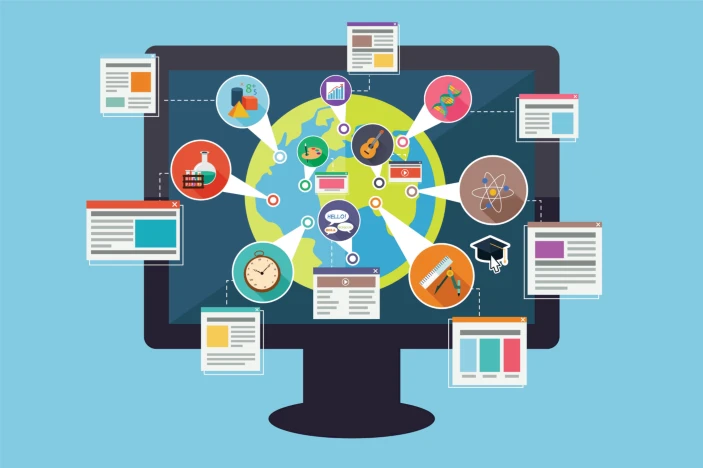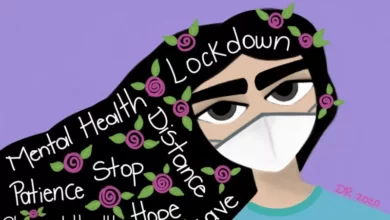Online Learning and Its Impact on Education

In today’s fast-paced and dynamic world, technology has transformed the way we learn and access information. One of the most significant changes in education over the past decade has been the rise of online learning. Online learning, also known as e-learning or distance learning, has made education more accessible, affordable, and flexible than ever before. In this article, we will discuss the impact of online learning on education.
Advantages of Online Learning
Online learning has many advantages that make it an attractive option for learners worldwide. These advantages include:
Flexibility
Online learning offers flexibility in terms of time, location, and pace of learning. Learners can access learning materials from anywhere at any time, making it easier to balance education with other commitments such as work, family, or hobbies. Online courses also allow learners to work at their own pace, giving them the freedom to review materials and take assessments when they are ready.
Cost-effectiveness
Online learning is often more cost-effective than traditional classroom-based learning. Learners can save money on transportation, textbooks, and accommodation fees. Online courses also tend to be more affordable than traditional courses, making education accessible to a broader range of learners.
Improved Access to Education
Online learning has increased access to education, particularly for learners in remote or underserved areas. Learners can access courses from top universities and institutions worldwide without having to travel to attend classes physically. Online learning also provides access to specialized courses that may not be available in traditional classroom settings.
Challenges of Online Learning
While online learning offers many benefits, it also poses some challenges for learners. These challenges include:
Technical Difficulties
Online learning requires a stable internet connection, a compatible device, and basic computer skills. Learners who lack these resources may struggle to participate in online courses effectively. Technical difficulties such as internet outages or hardware failures can also disrupt online learning.
Lack of Personal Interaction
Online learning often lacks the personal interaction that traditional classroom-based learning provides. Learners may feel isolated or disconnected from their peers and instructors, which can lead to feelings of disengagement or disinterest.
Need for Self-discipline
Online learning requires self-discipline and time management skills. Learners must be able to prioritize their education and stay motivated to complete assignments and assessments without face-to-face interaction with instructors or peers.
Impact of Online Learning on Traditional Education
Online learning has had a significant impact on traditional education, leading to several changes in the educational landscape. These changes include:
Increase in Blended Learning
Blended learning, which combines traditional classroom-based learning with online learning, has become more common in recent years. Blended learning provides learners with the best of both worlds, allowing them to benefit from the personal interaction and structure of traditional classroom
apart from the flexibility and accessibility of online learning and the interaction and support provided by online instructors.
Expansion of Educational Opportunities
Online learning has expanded educational opportunities for learners worldwide, allowing them to access courses and programs from top universities and institutions that may not have been available to them previously. This expansion of opportunities has also led to a more diverse student population, with learners from different backgrounds and geographical locations.
Need for Technology Integration
Online learning has also increased the need for technology integration in traditional education. Educators have had to adapt their teaching methods and incorporate technology into their curricula to keep up with the changing educational landscape.
Online Learning Trends
As online learning continues to evolve, new trends have emerged that are shaping the future of education. These trends include:
Personalized Learning
Personalized learning, which involves tailoring educational content and experiences to meet the specific needs and interests of individual learners, has become increasingly popular in online learning. Personalized learning allows learners to focus on the topics and skills that are most relevant to their goals and interests.
Gamification of Learning
Gamification of learning involves incorporating game-like elements into educational content and experiences to make learning more engaging and enjoyable. Gamification can help learners stay motivated and focused on their learning goals.
Social Learning
Social learning involves using social media platforms and online communities to facilitate learning and collaboration among learners. Social learning provides learners with the opportunity to connect with peers and instructors, share ideas and resources, and receive feedback and support.
Future of Online Learning
The future of online learning looks bright, with advancements in technology and changes in the educational landscape driving the development of new and innovative learning models and approaches. Some of the factors that will shape the future of online learning include:
Advancements in Technology
Advancements in technology such as virtual reality, artificial intelligence, and machine learning are already having an impact on online learning. These technologies have the potential to revolutionize the way we learn and access educational content, providing learners with immersive and interactive learning experiences.
Changing Educational Landscape
The educational landscape is changing, with more emphasis being placed on lifelong learning and the development of skills that are relevant to the 21st-century workforce. Online learning is well-positioned to meet these changing needs, providing learners with access to flexible, affordable, and relevant education and training opportunities.
Evolving Needs of Learners
As learners become more diverse in terms of their needs, preferences, and backgrounds, online learning will need to adapt to meet these changing needs. This will involve developing more personalized and flexible learning models that can accommodate learners with different learning styles and goals.



